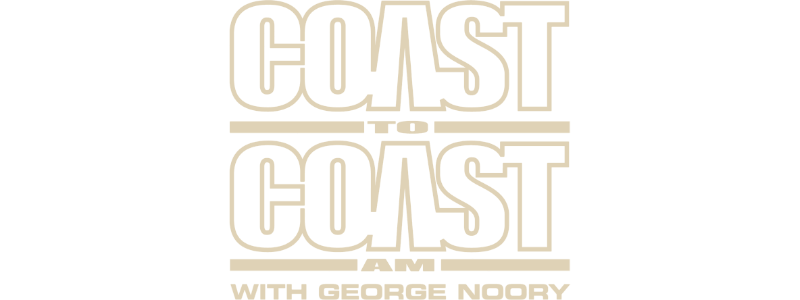In today’s fast-paced world, the allure of self-help books, seminars, and podcasts is undeniable. They promise to provide the latest empowerment strategies and methods for self-improvement. However, what happens when the quest for personal development overshadows the equally important journey of self-acceptance?
Indeed, the self-help industry can sometimes feel like a never-ending treadmill. While striving for a better version of ourselves is commendable, this relentless pursuit may paradoxically lead to a situation where self-help negates self-acceptance. It’s easy to become so focused on achieving goals and transforming our lives that we forget to appreciate who we are right now.
The key lies in finding balance. Embracing personal growth doesn’t mean dismissing our current selves. Instead of viewing self-improvement and self-acceptance as mutually exclusive, it’s beneficial to see them as two sides of the same coin. By doing so, our journey towards self-betterment becomes both fulfilling and grounded in reality.
The Paradox of Self-Help and Self-Acceptance
The world of self-improvement is vast and tempting, offering countless paths to becoming a better version of ourselves. But have we ever paused to consider whether these paths might lead us away from embracing who we are today? This section delves into the contradictions inherent in the pursuit of self-help and the necessity of self-acceptance.
Understanding the Self-Improvement Trap
At first glance, the journey of personal development appears to be a noble quest. Yet, how often does it transform into a relentless pursuit that leaves us feeling more inadequate than empowered? This subsection explores how the drive for self-enhancement can become an endless loop.
Many individuals find themselves caught in the self-improvement trap, where each achievement only highlights areas needing further improvement. This can lead to a cycle of perpetual dissatisfaction. It’s akin to climbing a mountain, only to discover that there’s another peak just beyond the horizon. According to a study by SAGE Journals, individuals who focus excessively on self-improvement often experience increased levels of stress and anxiety, as they become fixated on what they lack rather than what they possess.
- Perfectionism: The belief that one must constantly strive for perfection can be paralyzing.
- Comparison: Continuously measuring oneself against others can erode self-worth.
- Unrealistic Goals: Setting unattainable objectives can lead to chronic discontentment.
By recognizing these patterns, we can begin to shift our focus from what we need to change to what we already are.
When Empowerment Strategies Become Limitations
Empowerment strategies promise liberation and growth, yet they can sometimes morph into constraints. This section discusses how methods designed to enhance our lives might inadvertently hinder our ability to accept ourselves fully.
While these strategies are intended to provide guidance, they can often result in a rigid framework that limits personal freedom. For instance, adhering strictly to daily affirmations or routines might become an obligation rather than a choice, turning a tool for growth into a shackle. As noted by psychologist Dr. Brené Brown, “True belonging doesn’t require us to change who we are; it requires us to be who we are.”
Moreover, the pressure to constantly improve can overshadow the essence of self-acceptance. It’s essential to remember that acceptance is not about complacency but about acknowledging and valuing our current state. By allowing ourselves to be imperfect and recognizing the beauty in our flaws, we create space for genuine growth that stems from a place of self-love rather than self-criticism.
Finding Balance in Personal Growth
Do you ever feel like you’re caught between two worlds — one urging you to constantly improve and the other whispering to embrace who you are? Striking a balance between personal growth and self-acceptance is not just beneficial, it’s crucial for mental and emotional wellness. Let’s explore how one can nurture self-acceptance while still pursuing personal development.
Cultivating Self-Acceptance Amid Personal Development
Is it possible to grow without losing sight of our inherent worth? The journey of self-improvement often paints a picture of an ever-elusive “ideal” self. Yet, it’s important to remember that personal growth should be a journey, not a race. Recognizing our current strengths and values is a foundational step in this process.
To cultivate self-acceptance, begin by embracing your unique qualities. This involves acknowledging your achievements and understanding that being a “work in progress” doesn’t imply inadequacy. Think of it like nurturing a garden; while new seeds promise future blooms, the existing plants are already thriving in their own right. According to Brené Brown, “Owning our story and loving ourselves through that process is the bravest thing that we will ever do.” This perspective encourages us to appreciate our present selves while welcoming growth.
Moreover, practicing mindfulness can significantly enhance self-acceptance. By being present and observing our thoughts without judgment, we can better appreciate who we are at this moment. Mindfulness invites us to celebrate our current state while holding space for future improvements.
Practical Steps to Harmonize Self-Help with Self-Love
How can we ensure that our self-help efforts don’t overshadow our self-love? Start by setting realistic and flexible goals. While ambition is commendable, overly rigid targets can lead to frustration and self-doubt. Instead, establish goals that inspire and motivate without becoming an emotional burden.
To harmonize self-help with self-love, consider the following practical steps:
- Set Intentions: Instead of focusing solely on outcomes, set intentions that align with your values and passions.
- Practice Gratitude: Regularly acknowledge and appreciate your achievements and qualities, however small they may seem.
- Limit Comparisons: Refrain from comparing your journey to others’, as each person’s path is uniquely theirs.
- Embrace Rest: Allow yourself time to recharge, understanding that rest is a crucial component of growth.
By integrating these strategies, you can foster a self-help routine that enriches rather than diminishes your self-worth. Remember, the ultimate goal is to grow in a way that enhances your life and nurtures your soul. Creating a harmonious blend of self-improvement and self-acceptance allows you to thrive as both your current and future self.
Embracing Growth Through Self-Acceptance
In the pursuit of personal development, it’s crucial to recognize that self-improvement and self-acceptance are not opposing forces but complementary elements of a fulfilling life. While self-help strategies offer valuable tools for growth, they should never overshadow the importance of embracing our current selves. By understanding the self-improvement trap and recognizing when empowerment strategies become limitations, we can navigate the journey of personal growth with mindfulness and grace.
Striking a balance means allowing ourselves to evolve while cherishing the unique qualities that define us today. This harmonious approach ensures that our efforts to better ourselves are anchored in self-love and appreciation. By setting realistic goals, practicing gratitude, and limiting comparisons, we can foster a self-help routine that enriches our lives rather than diminishes our self-worth.
Ultimately, personal growth should be about nurturing the soul and enhancing our well-being. As we continue to evolve, let’s remember that true empowerment comes from a place of acceptance, where we celebrate who we are while holding space for who we can become. In this way, we can thrive as our most complete selves, both now and in the future.






